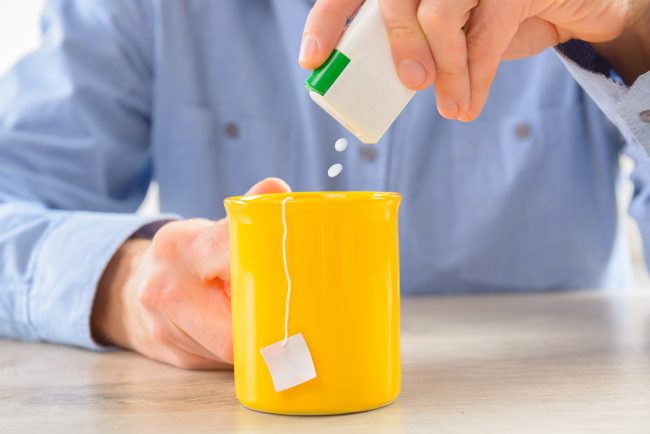
Overview
Artificial sweeteners are invented to taste like sugar.
Agave nectar is a refined sweetener that’s often marketed as healthy.
However, it’s highly artificial and extremely high in fructose. High amounts of fructose from added sweeteners can be absolutely disastrous for health based on (26).
There’s no safest artificial sweetener to use. Nor are there the least harmful sweeteners. None of them are currently banned from the US market, however.
Today’s healthy quote, “There’re many ways to keep fit. One of it is to simply avoid fake food!”.
Artificial sweeteners have been scrutinized intensely for many years. More formulas had been invented to overcome the problems. One of them is the renowned agave nectar.
Take a closer look, agave nectar is even higher in fructose than many other sweeteners.
Whereas table sugar is 50% fructose and high-fructose corn syrup around 55%, agave nectar is 85% fructose according to (27).
Problems
Artificial sweeteners, notably the most toxin product, are worse than eating raw sugar. No. 1 killer in the USA, UK, Canada, and other parts of the world. Yet, it’s the best-selling product in the marketplace!
Critics of artificial sweeteners especially agave nectar revealed that these products cause a variety of health problems. Back in the 1970s, artificial sweetener contains saccharin link to bladder cancer in laboratory rats based on (41).
Toxic ingredients are mainly aspartame, neotame, acesulfame potassium, etc. Calories induced lead to the risk of diabetes, high blood pressure, heart disease, and metabolic syndrome according to (4, 5, 6).
Substitute commodities too affect dental health. Unlike sugar, during the food breakdown process, the production of acid causes damage to tooth enamel because artificial sweeteners don’t react with bacteria in the mouth.
How about sugar-free products like gums? According to a survey in Harvard University (40), sugar-free gums do contain aspartame, which is deemed as the most dangerous substance worldwide – sugar may not be a bad commodity after all.
Alternatives
Stevia and erythritol are healthy, natural, and calorie-free alternatives.
Honey makes an excellent choice. To ensure a healthy diet, honey produces a lower glycemic index (GI) value than sugar or any artificial sweetener, meaning that it does not cause a spike in blood sugar levels as quickly based on (40). Certainly, the sweet nectar is tastes better than sugar.
Maple syrup is another good alternative. The recipe has ranked lower in glycemic index (GI) value of 54 while producing more nutritional benefits such as calcium, iron, magnesium, potassium, zinc, copper, and manganese (39) – way more food nutrition than highly popular brown sugar.
Other types of syrup that are made from natural sources can be good alternatives too.
Healthily written, prettily disseminated …
Always verify the origin of sweeteners before making a purchase. Real syrup-based products do not come cheap. Check the food nutrition label.
Substitute GMO commodities with healthy alternatives according to the list above.
Artificial toxins contain ingredients that will result in a risk of diabetes, cholesterol levels, blood thickening, and other chronic health problems according to (4, 5, 6).
Better still if you could completely give up artificial sweeteners for a healthier diet.
Tip: See your doctor. Once every 2-3 months: check for potential glucose spikes, healthy cholesterol levels, gum diseases, tooth cavities and decays, chronic health illnesses, etc.
Notice: Go for healthy dieting. Quit smoking, nicotine abuse, avoid sweeteners, use medical mouthwash, etc.
Practice: Fitness regime – jogging, home exercises, non-alcoholic mouthwash, etc.
Prime: Remove sugar or artificial flavor sources as a whole – try out healthy alternatives mentioned above.




